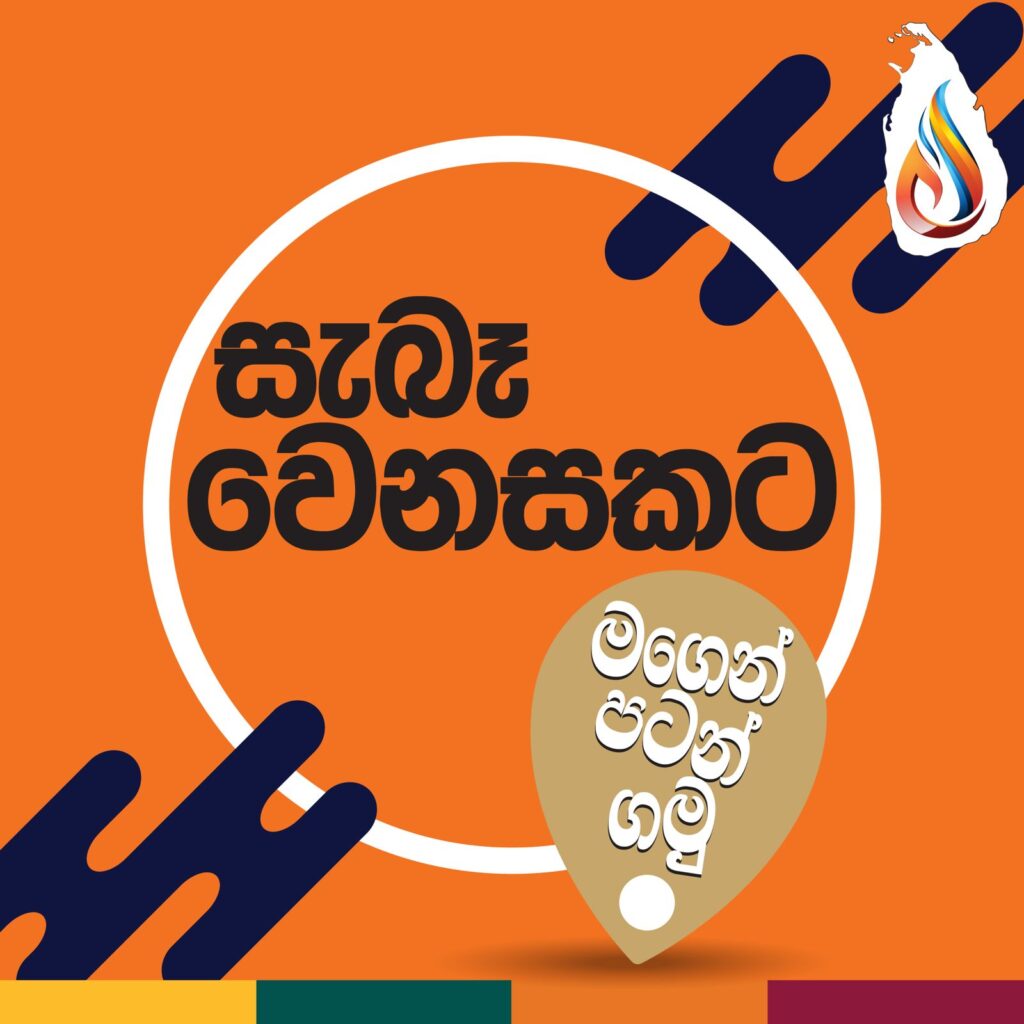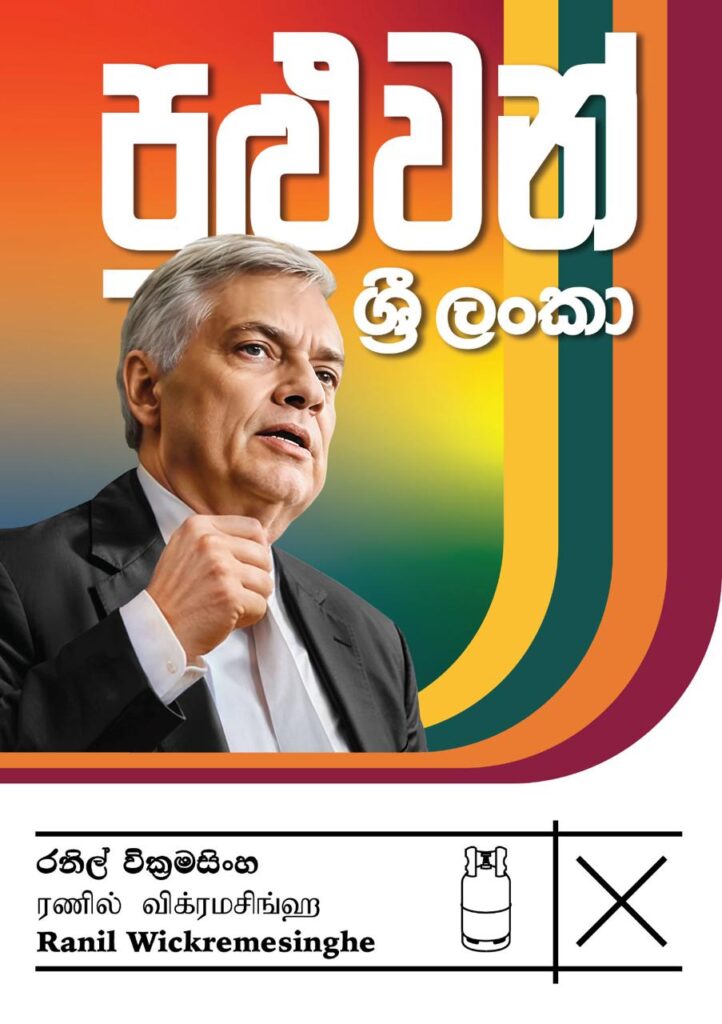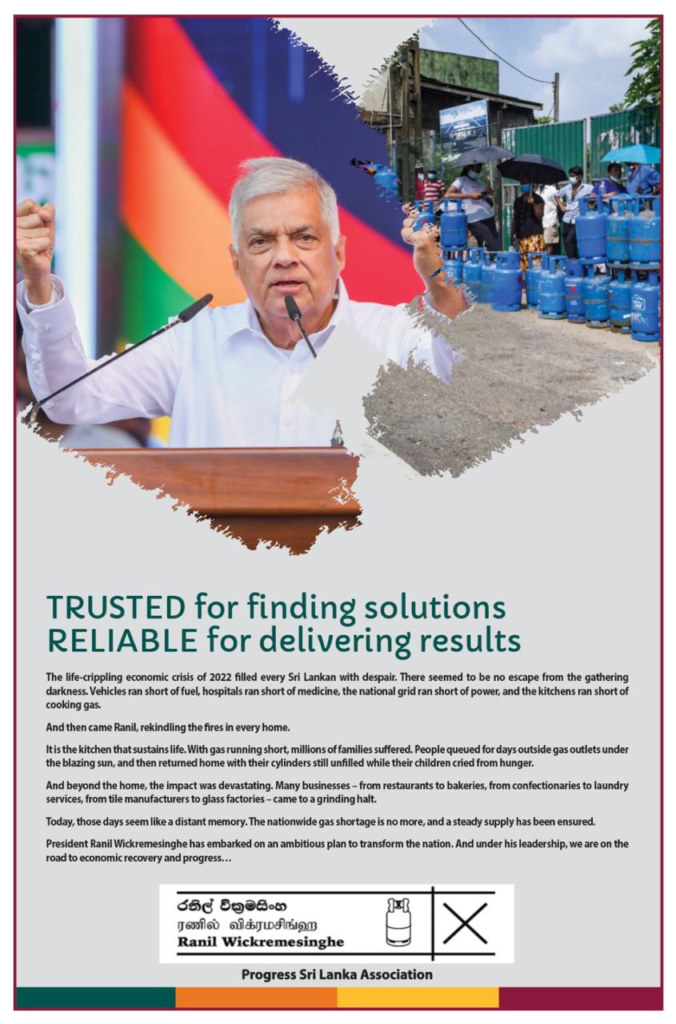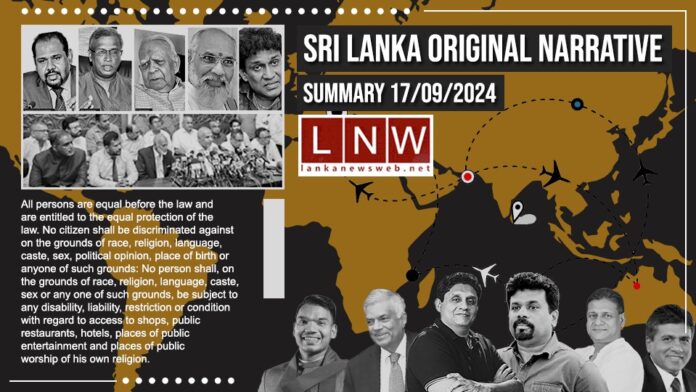- President Ranil Wickremesinghe, at the “Ranil Can” rally, emphasises Sri Lanka’s economic recovery efforts and international support from India and Japan: announces plans for Trincomalee’s development and pledges to improve living conditions: Criticising rivals for their inaction during the crisis, he urges voters to support his continued leadership, aiming to resolve ongoing economic challenges by 2025.
- SJB presidential candidate Sajith Premadasa stresses the need for a leader who treats everyone equally, regardless of caste or religion: proposes boosting Sri Lanka’s tourism by learning from Malaysia, addressing local housing issues, modernising schools and hospitals, and criticises rivals for their silence on past injustices towards the Muslim community.
- The National People’s Power (NPP) vows to cancel the Adani Group’s wind power project in Sri Lanka if elected in the upcoming presidential election: Candidate Anura Kumara Dissanayake claims the project threatens energy sovereignty: The Adani Group faced legal challenges over environmental concerns, transparency issues, and allegations of a financially disadvantageous tariff for Sri Lanka.
- The Ilankai Tamil Arasu Kachchi (ITAK) officially decides to endorse SJB presidential candidate Sajith Premadasa in the upcoming election, following a meeting in Vavuniya: Despite party leader Mavai Senathirajah’s support, some dissent exists, notably from MP S. Shritharan, who advocates for Tamil common candidate P. Ariyanethiran, criticising the Sinhalese candidates’ commitment to Tamil issues.
- Ahead of the Presidential election, Sri Lankan law enforcement is authorised to use firearms if disturbances occur at polling stations: Public Security Minister Tiran Alles confirms a robust security plan, including deploying 54,000 police officers nationwide, to maintain order: Measures focus on potential unrest, safeguarding the electoral process, and ensuring secure ballot box transportation.
- Chinese Ambassador Qi Zhenhong says both China and Sri Lanka are entering crucial five-year periods, offering new cooperation opportunities: emphasises the importance of the nations’ close economic ties, including projects like Port City Colombo: notes both countries are at pivotal junctures, suggesting enhanced future collaboration.
- A Commonwealth Observer Group (COG) is in Colombo to observe Sri Lanka’s 21 September presidential election, marking the Commonwealth’s 200th observation since the 1980s: The 15-member group, led by Seychelles’ former President Danny Faure, aims to assess the electoral process, ensure democratic standards, and support peace: They will issue a preliminary report on 23 September.
- Sri Lanka’s Election Commission warns employers to grant employees sufficient leave to vote in the upcoming Presidential election: Commissioner Saman Sri Ratnayake emphasises voting as a fundamental right, outlining specific leave guidelines based on the distance to polling stations: Legal action may be taken against non-compliant institutions, ensuring all eligible voters have fair access to the democratic process.
- The All Ceylon Health Service Union accuses Dr. Saranga Alahapperuma, Chairman of Sri Jayewardenepura General Hospital, of making arbitrary recruitments and promotions in violation of election laws: Despite the complaints, the Election Commission has not acted: Alahapperuma defends his actions, stating that all appointments followed due processes and were approved by the Commission.
- Sri Lanka Women’s ‘A’ fast bowler Malsha Shehani took 4 for 12, but Bangladesh Women’s ‘A’ secured a 10-run victory in the third T20, winning the series 3-0: Bangladesh scored 97 for 9, with Shathi Rani top-scoring at 26: Sri Lanka managed 87 for 8 in response, with Kaushani Nuthyanga and Nilakshana Sandamini contributing 21 and 22 runs, respectively.




